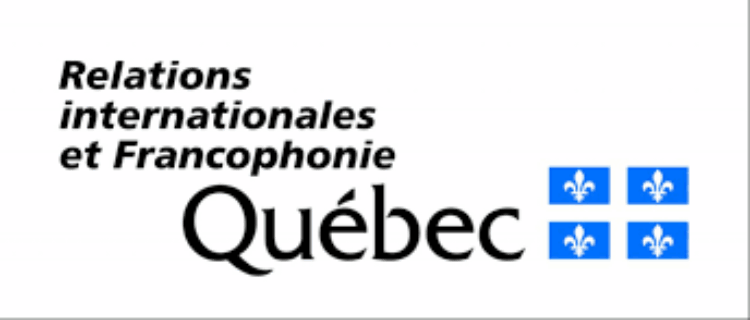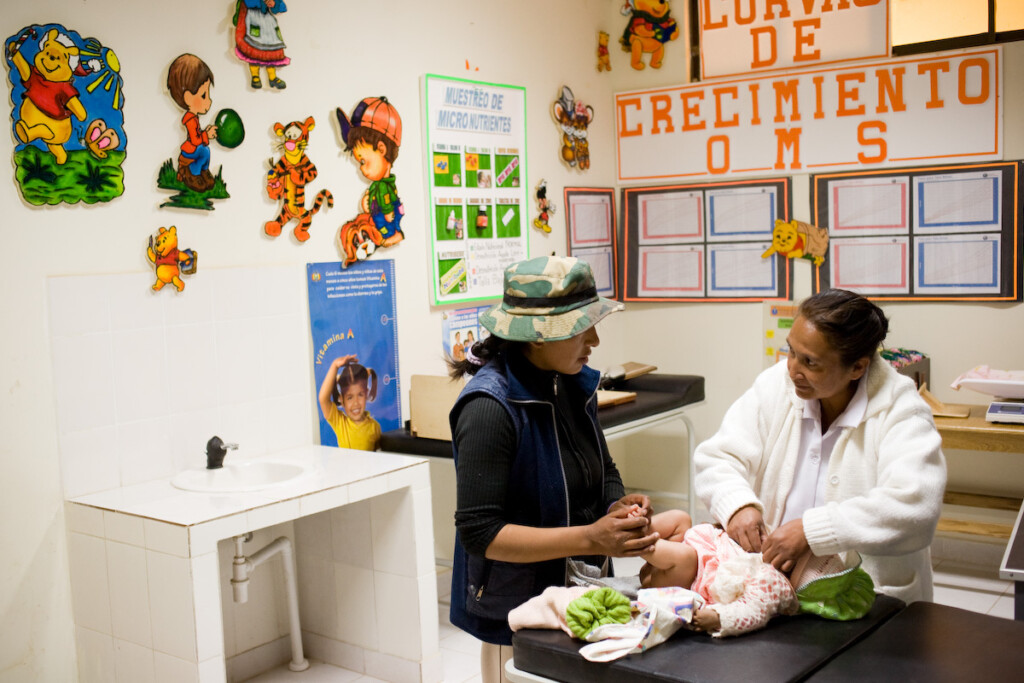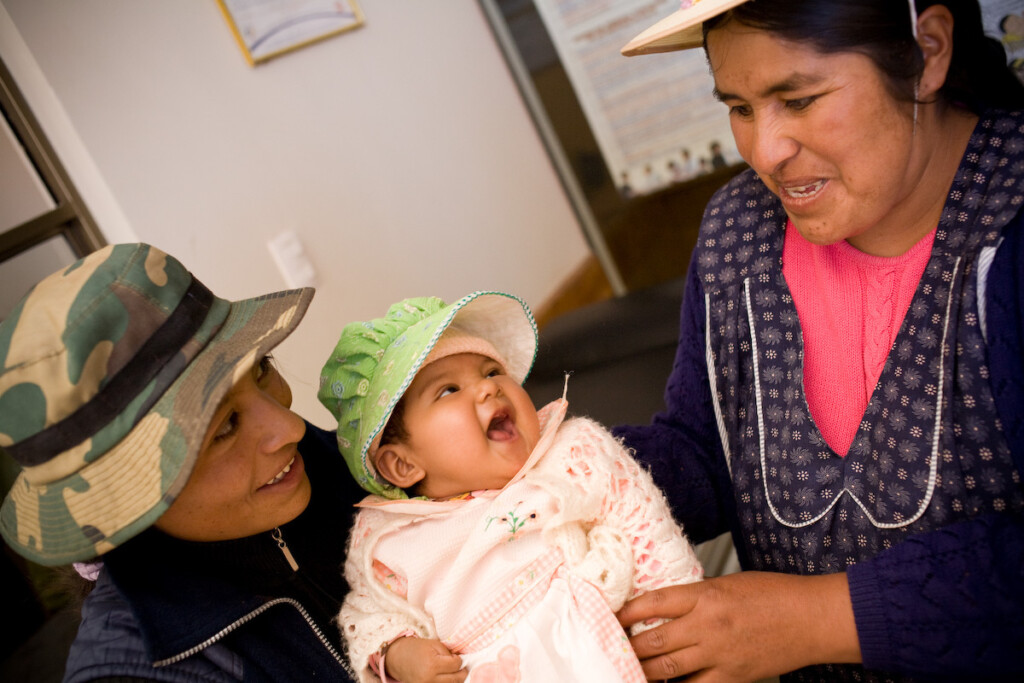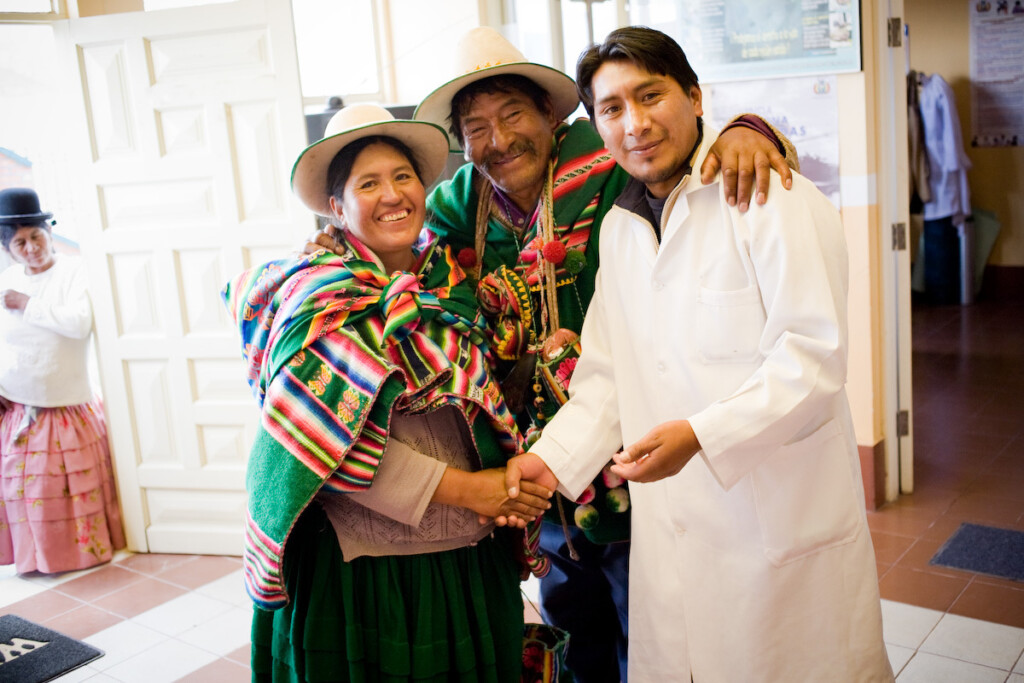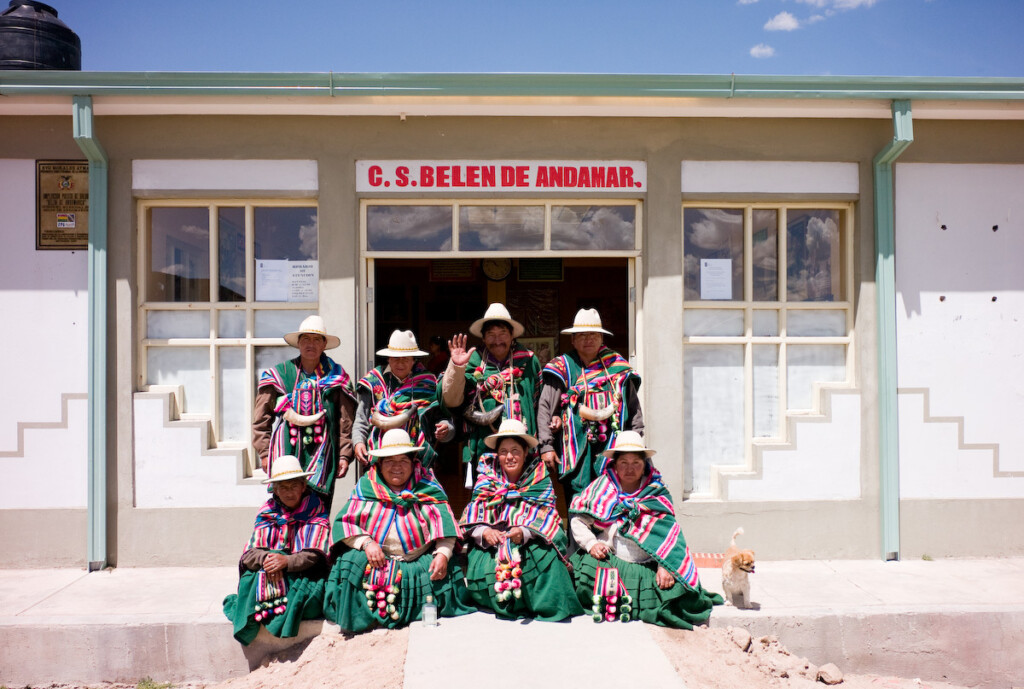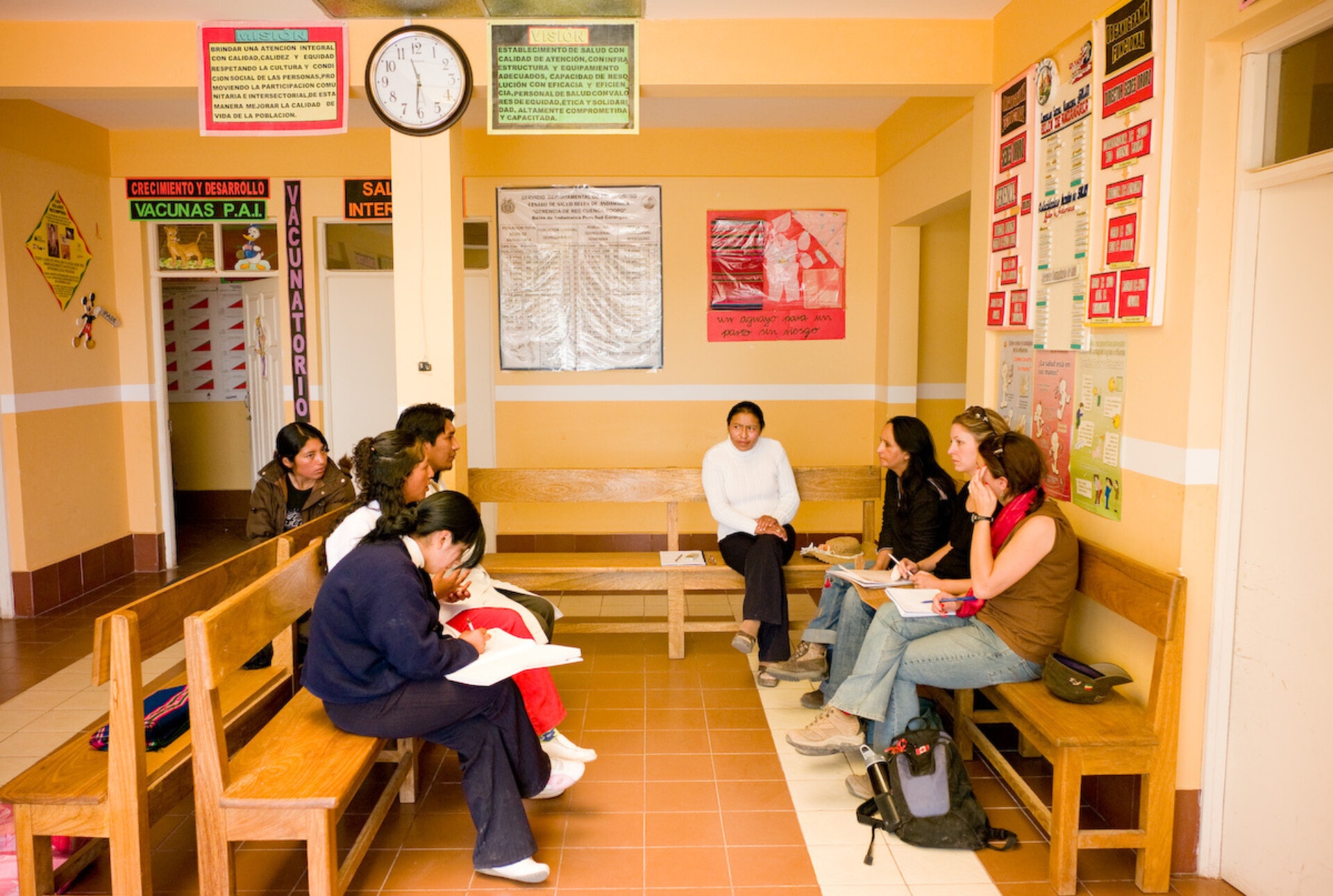
Completed project
Aguayo: Mother and Child Health Project
CAD$ 375,000
This project was funded with support from:
USD 150,000 – Québec Ministry of International Relations and La Francophonie (MRI)
USD 100,000 – Government of Canada through Foreign Affairs, Trade and Development Canada (DFATD)
EUR 150,000 – Save the Children
107,000 people
4,866 women and 3,528 children ages 0 and 5
Mancomunidad Aymaras sin Fronteras
In Bolivia, maternal and newborn health remains a serious concern in many rural Indigenous municipalities. Since 2006, CECI has been implementing the project “An aguayo for a safe delivery” to improve access to culturally respectful and safe maternal care. This innovative initiative integrates ancestral Aymara and Quechua knowledge into public health services, in collaboration with traditional midwives, medical teams, and local communities. Now active in 13 municipalities in the department of Oruro, the project is based on a participatory intercultural approach that promotes women’s rights and long-term well-being. It is recognized by Bolivian authorities and international organizations as a model for culturally appropriate health care.
Intercultural maternal health
When tradition strengthens rights
In the Bolivian Andes, many Indigenous women still give birth alone or with family support, far from health services. This reality is partly due to the lack of integration between Western medical practices and deeply rooted Indigenous traditions. In response, CECI developed an innovative model that bridges both worlds: creating culturally adapted birthing centres, recognizing the vital role of traditional midwives, and fostering women’s leadership in local health governance. This model has led to a significant increase in assisted births and prenatal consultations, while strengthening the cultural and reproductive rights of Indigenous women in Bolivia.
Results that count
A lasting impact in communities
107,000
people reached by the project
+70%
increase in births assisted by health services
+100%
increase in prenatal consultations
13
Indigenous municipalities participating
1
international development excellence award (Bill McWhinney Award – CECI)
Our partners
Thank you to our financial, consortium and implementation partners, without whom this project would not be possible.

